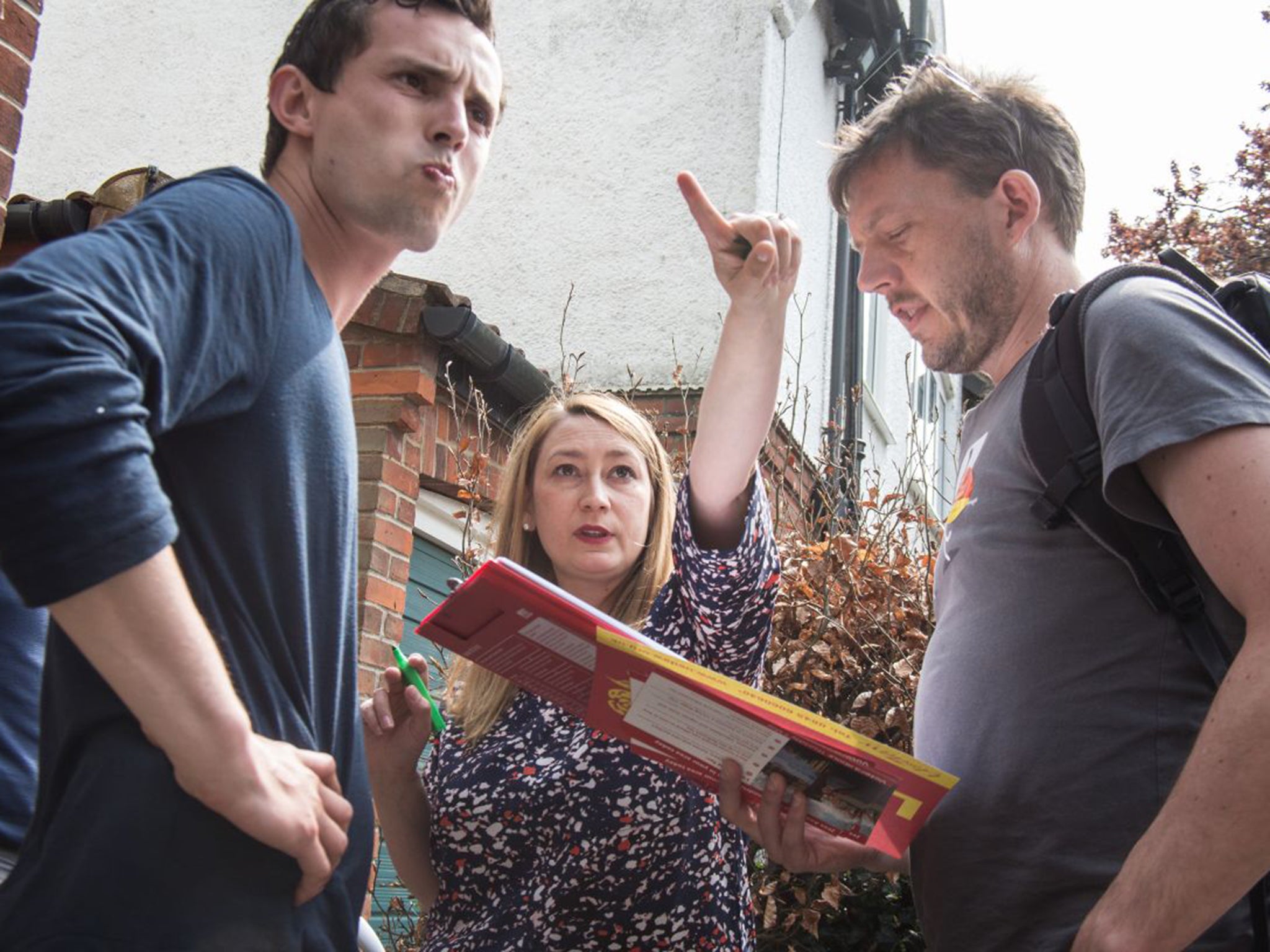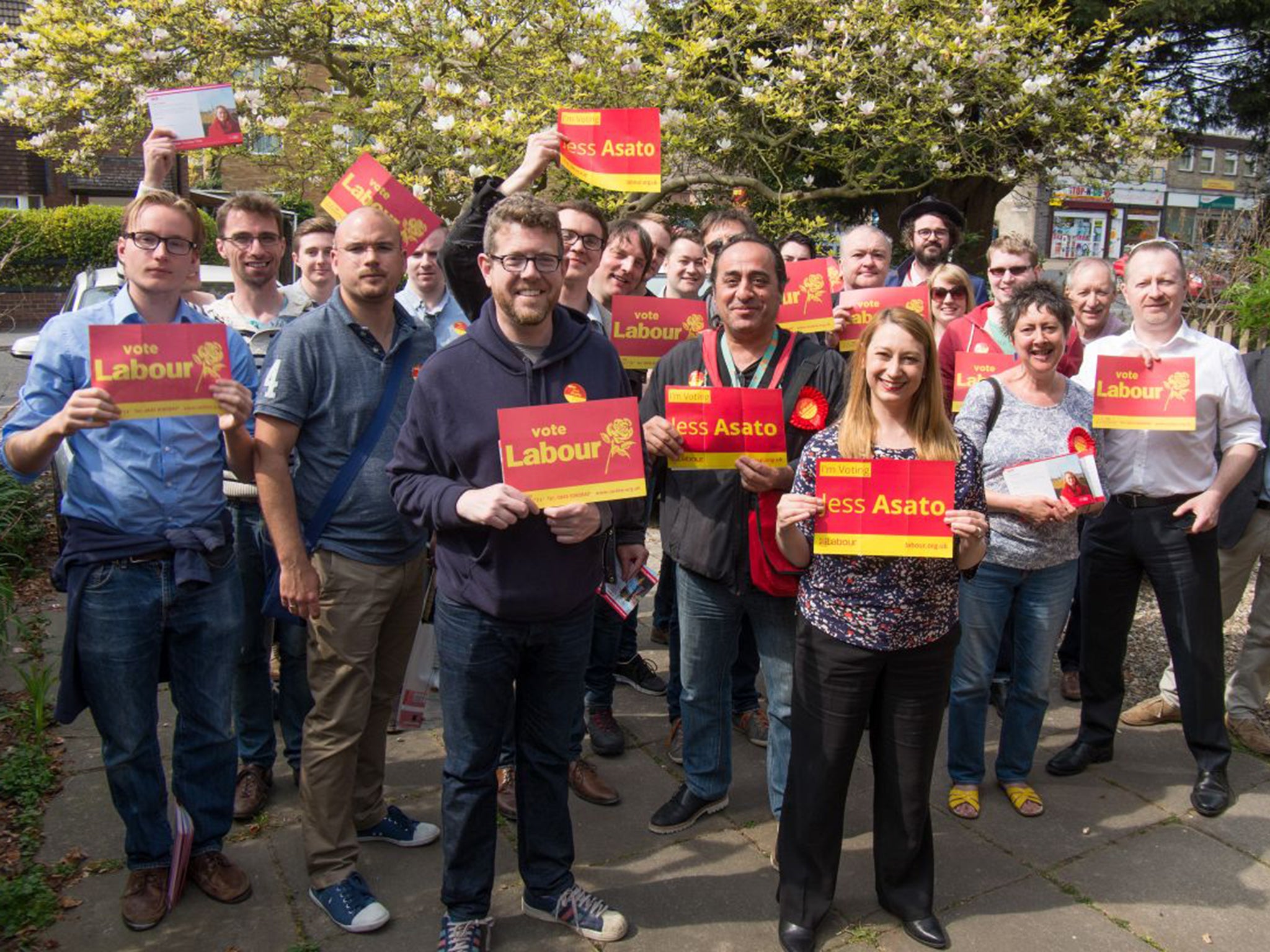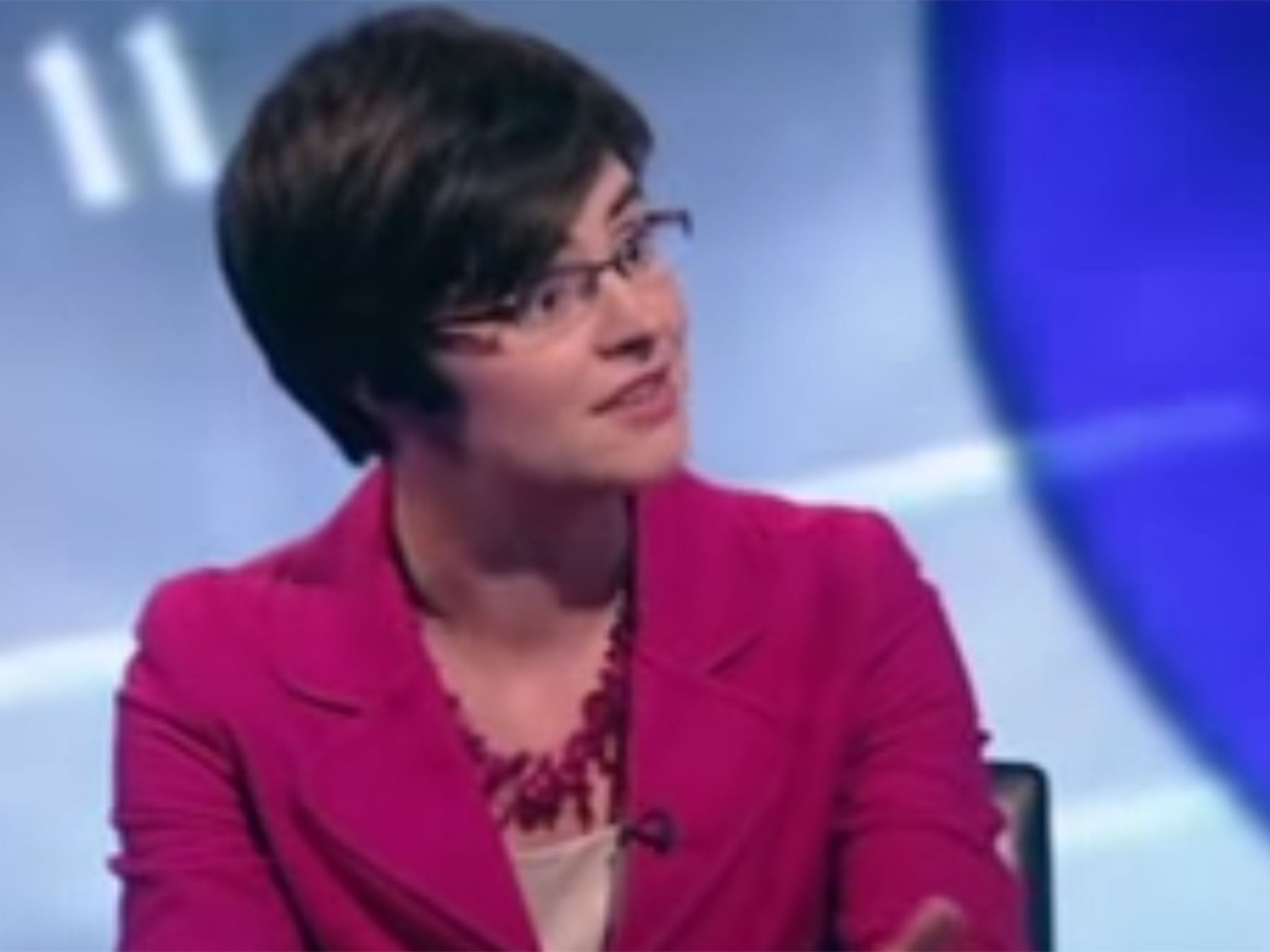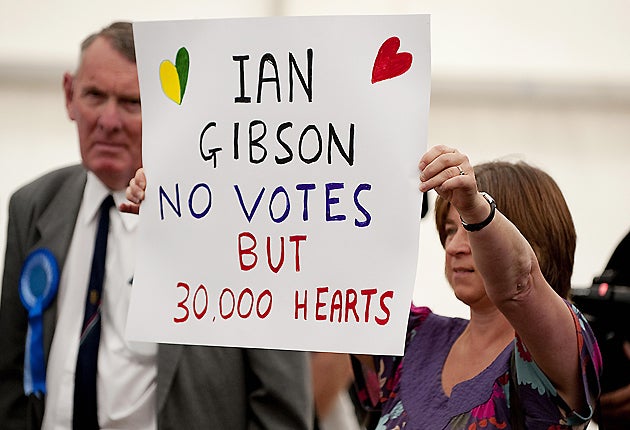General Election 2015: Jess Asato - the candidate for Norwich North who could give Labour the majority it needs
Mary Dejevsky spends a day with an energetic candidate juggling political ambition with a 17-week-old daughter

It may feel strange to be in a supermarket with no intention of shopping, but for Jess Asato, it has become second nature. In her red coat and with a fresh layer of lipstick, she reports to customer services, who beam when they realise she has come not to complain, but as a guest. A small entourage materialises out of nowhere, and she is ushered through the staff-only doors to the lunch room – but not for lunch.
The Tesco megastore was another stop in Asato’s energetic and thoroughly modern campaign to be elected the next MP for Norwich North, but the most she managed in the way of sustenance was a very old-fashioned mug of tea.
She had been invited by the shop-workers’ union, Usdaw, which has helped sponsor her campaign, and her first priority was to thank the reps and meet some voters – which she managed with enviable geniality and a deft popular touch.
Wages, the cost of childcare and fears about privatisation in the NHS were among the women’s concerns in the lunch room. The men were more prickly. “So how are you going to pay for it then?” one wanted to know.
Are you undecided about who to vote for on 7 May? Are you confused about what the parties stand for and what they are offering? Take this interactive quiz to help you decide who to vote for...
To call the contest in Norwich North tight is to put it mildly. The latest data from Lord Ashcroft’s polling organisation puts Asato just one percentage point ahead of the Conservative, Chloe Smith (she of the disastrous interview with Jeremy Paxman), but Asato is counting no chickens – live, roast or frozen.
Over the years the seat has changed hands with the national trend, and Labour would like to see Smith’s tenure as an aberration.

The last Labour MP, Ian Gibson, resigned in 2009 after becoming ensnared in the expenses scandal, and Smith captured the seat in a by-election, retaining it in 2010 with a 3,900 (9.2 per cent) majority. But boundary changes and tracts of new housing have made the constituency even less predictable.
On the surface, Asato, 33, is taking a stoical view. But the pressure is on. Her constituency is not only one of the seats Labour has targeted; at number 67 on their list, it is the one that would, it is calculated, give Labour an overall majority. So winning or losing has implications far beyond Norwich North.
Nor is Asato’s life devoid of tempting distractions. In the car with us, her cot anchored safely to the back seat, is 17-week-old Freya. As Asato tells me, when she won the nomination three years ago, she had no thought of marriage or children.
Widowed in 2008, after just seven months of marriage to BBC producer Gareth Butler, she had practically written off a future family. She took stock of her life, devoted herself full-time to politics, and has since remarried. Asato readily admits that she could not juggle all that now has to be juggled without the help of her friend Maggie – campaign organiser, driver, mentor, Freya-minder and indispensable all-purpose everything.

Before the supermarket call, Asato has taken part in a hustings at a local school. After the supermarket, we repair to Maggie’s house, where the front room is a sea of red leaflets awaiting distribution, and the kitchen a bountiful source of tea.
Everything Jess Asato says and does in the day that I am with her underlines her drive to move from policy formulation to practice. Yet she can hardly let herself believe that it will actually happen – or even that she has got this far.
As a candidate, though, she has a lot going for her. She is a Norwich girl – she went to (state) school locally until she was 16, and was determined to stand in a constituency she knew. She had quite a complicated childhood – which, of course, is no liability for a would-be MP at a time when the political class is seen as out of touch.
There is also a hint of the exotic: she is a quarter Japanese – that is where the name comes from – and has family in Hawaii, where, she observes admiringly of US diversity, “they feel entirely comfortable being American and Japanese”.
She read law at Cambridge – which she insists she saw not as “Oxbridge”, but rather as her local university. With hindsight, she wishes she had read politics; her essays, she says, veered towards what she thought the law should say, rather than what it did say.
As this comment suggests, she arrived at Cambridge with her politics set. Her family were not political, but a teacher had spotted her interest early on. She traces her “political awakening”, as she describes it, to the 1987 Herald of Free Enterprise ferry disaster, in which 193 people died when the boat bound for Dover capsized outside the Belgian port of Zeebrugge.
“It was a massive breach of health and safety,” she says of the subsequent inquiry’s findings. “You can criticise the regulations, but they keep people alive.” Then there was John Major’s “back to basics” and the “lecturing” of single mothers. “I was a teenager in Norwich; we found what they were doing hypocritical and not at all what we thought.”
At 16, a family crisis had precipitated a move to London and to private sixth form. Of her private schooling, she says: “I understand the funding, the ethos, the sense of aspiration, but that experience made me more passionate about state education.”
Tony Blair’s “education, education, education” struck a chord, but she has serious reservations about what she sees as the current free-for-all. The “living wage” and the “bedroom tax” – “it’s a tax. I don’t care how often they call it a subsidy” – are other preoccupations. “You just don’t realise how many people are living so much on the edge.”
Asato is well aware of the public view of politicians and the liabilities of what she may be getting herself into. “Politics takes over your whole life. It makes you abnormal.” She and her husband make a point of finding “quality time”, which includes watching Poldark together on Sundays.
In preparation for the election, she looked back at how politics used to be done. “Politicians from 30 and 40 years ago,” she observes, “seem more normal; much more willing to concede they didn’t know everything. Now it’s about sound bites... so many things can’t be boiled down to something like fast food.”

Noting how much time earlier politicians took out – “amazing when you think of Ted Heath, doing his yacht, his orchestra, his weekends” – she sees a paradox: “Politicians are seen as more out of touch than they have ever been, but they are never more in contact, what with social media, internet, Twitter and the rest.”
She hates the way she says the Conservatives talk about public services: “They simply don’t ‘get it’.”
“As for talking about the ‘huge mess they had to clean up’” – she sounds exasperated – “are people waste? Where is this waste? I don’t understand, really.”
Nor is she afraid of words like “morality” or “duty”, lamenting what she sees as a change in attitude to voting. “There is this idea that ‘they’ won’t do anything for me. But voting needs to be seen as a collective act. It’s become transactional... It’s a deep shame that we’re losing that sense of duty.”
By now there is a stream of volunteers arriving to pick up leaflets, and my train beckons. But she wants to get one last thought across. “Government,” she says, “is about moral leadership... It’s not just a better form of management.” She adds: “We have a different vision. It’s not right to say we’re just all the same. We’re just not.”
Join our commenting forum
Join thought-provoking conversations, follow other Independent readers and see their replies
Comments
Bookmark popover
Removed from bookmarks